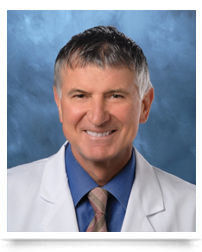Baby Aspirin After Heart Valve Surgery: What Should You Know?
Written By: Adam Pick, Patient Advocate & Author
Medical Expert: Dr. Marc Gerdisch, Chief of Cardiac Surgery at Franciscan Health
Published: February 3, 2022
Since the 1970s, baby aspirin has been recommended for the prevention and the management of heart disease. For example, the American Heart Association has recommended low-dose aspirin for “those at risk of heart attack (if prescribed by their doctor) and for those who have survived a heart attack”.
However, new medical research has emerged that has people asking questions about the benefits, the risks and the use of baby aspirin for patients who underwent heart valve repair and heart valve replacement operations. For example, Duncan just emailed me, “Hi Adam: I had an aortic cow valve replacement and single coronary artery bypass graft. I was immediately put on a baby aspirin after surgery. Now, I’m reading reports that bleeding risks from baby aspirin may be more significant than potential cardiac issues. I bleed easily. What is the latest recommendation specific to the use of baby aspirin for patients with tissue valves?”
For this reason, we interviewed Dr. Marc Gerdisch, the Chief of Cardiac Surgery at Franciscan Health in Indianapolis, Indiana, to answer Duncan’s question and to help all patients better understand the benefits, risks and use of low-dose aspirin after heart surgery.
Key Learnings About Baby Aspirin After Heart Valve Replacement Surgery
Here are important learnings from our discussion with Dr. Gerdisch:
- Dr. Gerdisch is a heart valve expert having performed over 4,000 heart valve repair and replacement procedures.
- New medical research advises against the use of baby aspirin for the prevention of heart disease for people who do not have heart valve disease or undergone heart valve replacement surgery and/or coronary artery bypass grafts (CABG). As Dr. Gerdisch states, “That means someone who does not have a diagnosis of vascular disease, someone who has not had their valve replaced, someone who has not had coronary bypass surgery, those patients, those people should not be taking a baby aspirin.”
- The reason is that the risk of bleeding outweighs whatever potential benefit there is for somebody who doesn’t have a cardiac disorder.
 Dr. Marc Gerdisch
Dr. Marc Gerdisch
- However, patients who have had a valve replacement and/or a CABG do experience a benefit of taking a low-dose aspirin when prescribed by their doctor.
- There are additional considerations that patients and their medical teams should be aware of specific to gastrointestinal bleeding, allergies, low platelets, etc.
- It’s critical for patients to really understand that baby aspirin is a treatment as it minimizes thrombosis.
@YouTube: What About Mechanical Valves & Baby Aspirin?
Shortly after positing the video above, we received a follow-up question from Arsal, at YouTube, who asks, “You specifically asked for tissue valve patient. How about patients, like me, with mechanical valves and taking permanent warfarin to consider aspirin as cardiologists in my country are not sure because I do not have coronary disease?”
Here is Dr. Gerdisch’s response to Arsal:
“Anticoagulation for people with mechanical prosthetic valves is a balance of the benefit of avoiding thromboembolism and the risk of bleeding. In addition to the basic principles of maintaining a safe level of anticoagulation, patient specific risks may be present in the form of vascular disease, frailty, atrial fibrillation, or bleeding tendency that will influence both the degree of anticoagulation and the use of aspirin in conjunction with warfarin.”
@YouTube: Aortic Aneurysms, Watchful Waiting & Baby Aspirin?
At YouTube, we received another question from AH, who asks, “What are your thoughts for those who have had their ascending aortic aneurysm repaired but are still in watching/waiting mode for their valve?”
Dr. Gerdisch’s response to AH:
“There is some evidence that aspirin decreases the adhesion of platelets to the surface of a Dacron graft. It is probably more important in smaller grafts. The aorta is a large vessel and replaced with a large graft and has high velocity flow. Overall though, assuming the patient does not have a significant bleeding risk or adverse reaction to aspirin, it is generally prescribed to further diminish the risk of thrombus formation on the inside wall of the graft.”
Many Thanks to Dr. Gerdisch!
On behalf of our patient community, many thanks to Dr. Gerdisch for taking the time to share his clinical research and experiences with our community!!!
I hope this information helped Duncan, Arsal, AH and you learn more about the use of baby aspirin for heart valve and aneurysm patients.
Related links:
- See 120 Patient Reviews for Dr. Gerdisch
- Top 5 Facts About Dr. Gerdisch’s Rapid Recovery Protocol
- What Is Rigid Sternal Fixation?
Keep on tickin!
Adam
P.S. For the hearing impaired members of our community, I have provided a written transcript of my video interview with Dr. Gerdisch below.
Video Transcript:
Adam Pick: Hi, everybody, it’s Adam with heartvalvesurgery.com, and today we’re answering your questions about the use of baby aspirin after heart valve replacement surgery. I am thrilled to be joined by Dr. Marc Gerdisch, who’s the chief of cardiac surgery at Franciscan Health in Indianapolis, Indiana. During his extraordinary career, Dr. Gerdisch has performed over 6,000 cardiac procedures, of which more than 4,000 involve some form of heart valve repair or heart valve replacement. Dr. Gerdisch, thanks so much for being with us today.
Dr. Gerdisch: Thanks for having me, Adam. Always a pleasure.
Adam Pick: So this question comes in from Duncan, but I’ve gotten several questions about this specific topic of baby aspirin, and Duncan asks, “Adam, I had an aortic cow valve replacement and single bypass. I was immediately put on a baby aspirin after surgery. Now I’m reading reports that bleeding risks from baby aspirin may be more significant than potential cardiac issues. I bleed easily. What is the latest recommendation specific to the use of baby aspirin for patients with tissue valves?”
Dr. Gerdisch: One of the things I love about the community at heartvalvesurgery.com is that they read, they try to learn, they assimilate new information. This is a really good question. There’s recent data that has come out and pretty robust data advising against baby aspirin for prevention. That means someone who does not have a diagnosis of vascular disease, someone who has not had their valve replaced, someone who has not had coronary bypass surgery, those patients, those people should not be taking a baby aspirin every day because when we look at thousands of patients like that, the risk of bleeding outweighs whatever potential benefit there is for somebody who doesn’t have a diagnosis of one of those disorders.
On the other hand, being on a low-dose aspirin after a valve replacement and/or after coronary bypass surgery is a different scenario and clearly has benefit, so now, you’d want to stop it if, for example, you developed gastrointestinal bleeding or you had a reason that you couldn’t be on it. You were allergic to it. You have a low platelet count. There’s something in it that endangers you specifically when you take aspirin, but if you do not have one of those specific concerns, clearly the benefits outweigh the risks, so I hope that makes sense.
It’s a treatment, and people think of it, well, it’s just a baby aspirin. It’s a small treatment, but it’s a treatment, and it’s for these specific disorders of vascular disease or having had your valve replaced with a tissue valve, etcetera. It minimizes thrombosis. Therefore, it’s better for folks who have those conditions to be on that baby aspirin.
Adam Pick: Duncan, I hope that helped you. I know it helped me learn more about the use of baby aspirin for folks with cardiac conditions. Dr. Gerdisch, as always, thanks for bringing this research and insight to our community. On behalf of all the patients here, thanks so much for your time today.
Dr. Gerdisch: Thank you so much. Really glad to be here.




